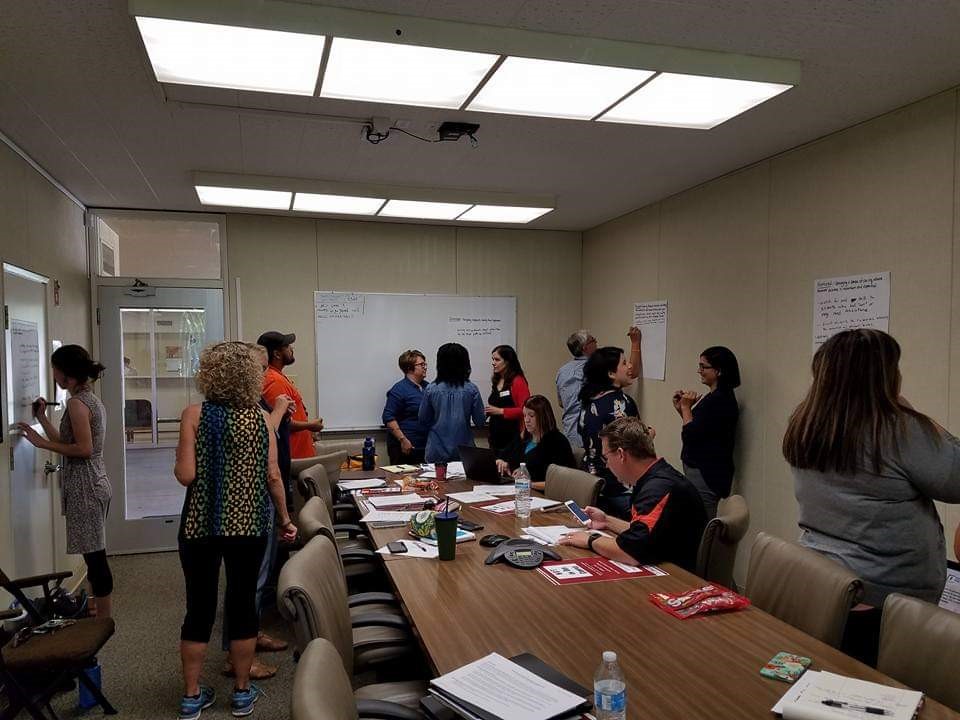To our college community:
As witnessed by current events during June 2020, our country has reached a cross roads where we either support hate and bigotry, or evolve to a culture of equity and inclusion. The deaths of George Floyd, Ahmaud Arbery, Rayshard Brooks and Breonna Taylor are but recent examples that we need to value every human life, but in this time and place especially Black lives… while we also recognize that our country has united in this moment to speak out against structural racism. That said, as representatives of Reedley College, we must actively contribute to building and maintaining a safe and secure teaching and learning environment for all students, regardless of their ethnicity, culture, religious beliefs or sexual identity.
To this purpose Reedley College will commit to the following activities:
- Create safe spaces for students, faculty and staff to discuss concerns and propose change
- Schedule regular town hall meetings to facilitate discussion of equity-related topics
- Move the Reedley College Equity Plan to action during 2020-2021.
- Participate in the USC / California Community College Alliance for Equity – Dr. Shaun Harper, Executive Director, will facilitate monthly small group project-based learning activities designed to generate actions to address structural racism and inequities within our campus community. Over 60 California Community Colleges have joined this alliance for change.
- Facilitate broad campus participation in the USC Center for Urban Education seminar series on racial equity in spring 2021:
Foundations in Racial Equity
- REC 700 - Foundations of Racial Equity in Higher Education
- REC 701 - Talking about Race, Racism, and Racial Inequities
Race-Conscious Leadership in Higher Education
- REC 704 - Advancing Racial Equity in a Mostly White Context
Assessment, Evaluation, and Racial Equity
- REC 709 - Using Assessment and Evaluation to Improve Campus Racial Climates
- REC 711 - Making Racial Equity Data Transparent
Racial Equity and Human Resources Management
- REC 719 - Retention and Advancement of Professionals of Color
- REC 721 - Relationships of Power and Reducing Abuse of Power in the Workplace
Administration and Management of Racial Equity
- REC 725 - Messaging Commitment to Racial Equity and Inclusion
As a college, we will maintain an open dialog on equity, inclusion and particularly racism, while we actively work to reduce both explicit and implicit bias in our learning environment and workplace.
I invite everyone to be part of this important effort.
Sincerely,
Dr. Jerry L. Buckley
Hello everyone –
Over the past month our country has witnessed unprecedented racial violence and unacceptable behavior. Today we take a stand for our students, employees, and communities.
Reedley College stands in solidarity with those fighting for equality and racial justice and in doing so, we affirm our commitment to identifying, addressing, and eliminating all forms of racism and ethnic biases. We are committed to establishing and sustaining an anti-racism learning and working environment by becoming racially literate and understanding the ways in which our biases (both conscious and unconscious), power and privilege influence our institutional services, policies, and practices.
As educational practitioners, we strive to equitize our college and educational practices, we acknowledge it is not enough to be “not racist.” We also recognize that regardless of one’s own race or ethnicity, every person has an individual perspective of racism, bias, and anti-racism. We will work to develop collective responses that oppose systematic racism and dismantle practices that perpetuate racism at Reedley College. Racially offensive comments, postings, or behaviors made by any Reedley College student or employee do not represent the values of the college and are unacceptable and will not be tolerated.
We stand committed and will hold ourselves accountable to:
- Affirm explicitly, and in united solidarity, our identity as an anti-racist educational institution.
- Fostering individual and institutional examination of implicit bias and systemic advantage/oppression such that our anti-racism commitment resulting in actions that are reflected in the life and culture of the college through our policies, programs, and practices as we continue to learn about racism and ethnic oppression.
- Developing and implementing strategies and best-practices that dismantle racism and ethnic oppression within all aspects of our departments, programs, and the broader communities we serve.
You will soon see additional information on our college website regarding specific actions we will take to address racism and create a welcoming environment for all students.
Sincerely,
Dr. Jerry L. Buckley,


 Anti-Racism Resources
Anti-Racism Resources




